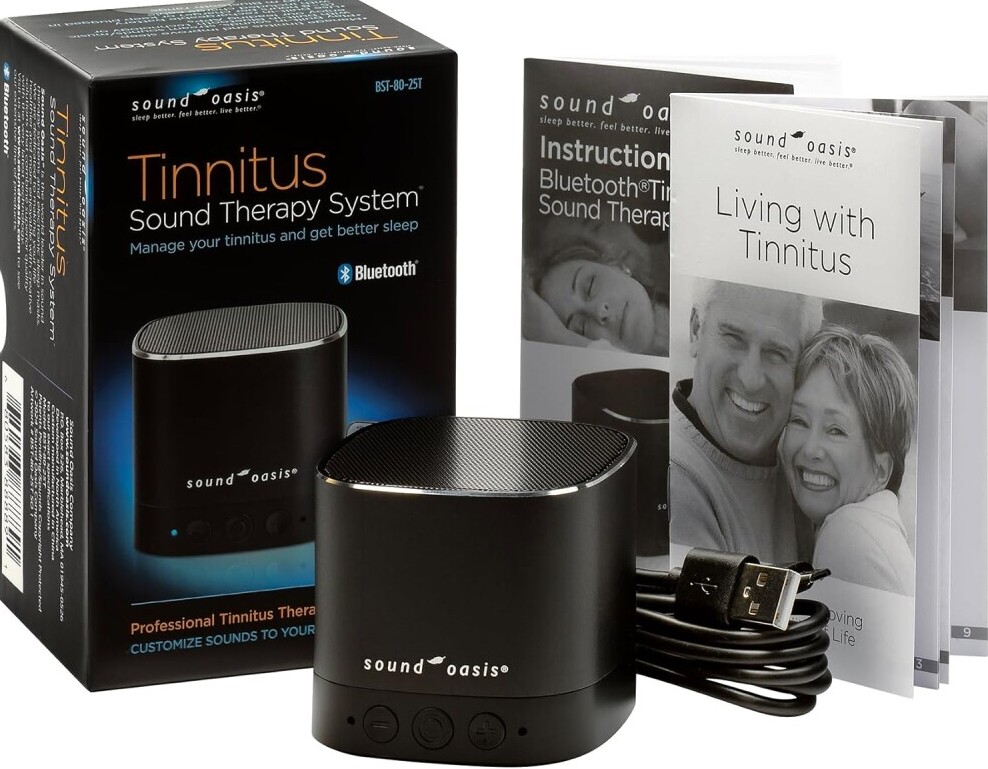Tinnitus can be a challenging condition to live with, not just because of the constant noise but also due to the emotional strain it creates.
The ceaseless ringing or buzzing may disturb your sleep and quality of life, leading to stress, anxiety, and even depression.
In today’s article, I will share nine strategies to help you manage your mental health while coping with tinnitus, guiding you toward a more balanced life.
1. Introduction
Let’s face it!
Living with tinnitus often feels like dealing with an unwanted soundtrack that never stops.
You may notice that this persistent noise eventually affects your mood, concentration, and outlook on everyday tasks.
The emotional toll can create a cycle in which stress makes the tinnitus seem even louder, and the louder tinnitus fuels more anxiety.
Managing your mental health is very important when handling this condition. In the following sections, I will share some tried-and-true strategies to help you remain calm and proactive on this adventure.
2. The Connection Between Tinnitus and Mental Health
Tinnitus doesn’t only affect your ears—it also invades your mind.
The continuous sound can trigger a strong emotional response, which in turn heightens your ability to pick up on the noise. When your mind is constantly alert and anxious, that ability intensifies the experience of tinnitus.
This loop can worsen stress levels, and the increased stress then makes the tinnitus more pronounced.
Understanding the link between your mental state and what you hear helps you figure out why you feel this way and gives you the power to break the cycle with practical strategies.
Recommended Reading: Can Gut Healing Ease Tinnitus?
3. Practice Sound Therapy or Background Noise
An effective way to cope is by incorporating sound therapy.
The goal is to mask or distract from the tinnitus with soothing background noise. When pleasant environmental sounds—like nature sounds, gentle rain, or soft white noise—compete with the persistent ringing, you are less likely to focus on the unwanted noise. Many people find relief with these natural soundscapes.
You might also consider digital apps made for tinnitus management. These apps offer customizable sound mixes that blend relaxing tones with frequencies selected to counter your tinnitus.
In some cases, hearing aids with built-in sound therapy can help, too, by amplifying external sounds and including a preset blend of background noises aimed at reducing the prominence of the ringing.
Personal Note: In my case, wearing my hearing aids acts as a great masker! They help me to hear over that ringing noise. When I go to bed, I have to take my hearing aid off, and that is where the Tinnitus comes back in full force.
Recommended Reading: Sound Oasis Bluetooth Tinnitus Sound Therapy System Review
4. Cognitive Behavioral Therapy (CBT)
Cognitive Behavioral Therapy, or CBT, has proven very effective in reducing the distress associated with tinnitus. This therapy works to reframe negative thoughts about your condition, essentially changing the way you react to the constant noise.
CBT can train you to let go of obsessive focus on the sound, which helps temper feelings of anxiety and depression.
Whether through one-on-one sessions or reputable online programs, taking this step may be one of the best ways to regain a sense of control over your mental well-being.
5. Practice Mindfulness and Meditation
Mindfulness is about being present and fully experiencing the moment without judgment. When tinnitus starts to dominate your thoughts, practicing mindfulness can significantly soothe your mind.

Meditation, in particular, helps switch your focus away from the noise and onto calmer sensations. Guided meditation sessions on apps like Calm, Headspace, or Insight Timer can direct your attention to your breathing, body sensations, or a simple visualization. Even brief sessions throughout your day can reduce overall stress.
Recommended Reading: Does Meditation and Tinnitus Go Hand In Hand?
6. Get Regular Physical Activity
Regular physical exercise is well known for boosting mood.
Physical activity not only releases natural stress-relievers such as endorphins but also diverts your attention from the persistent ringing.
Whether it’s walking, yoga, or swimming, any form of exercise can improve your overall well-being. Gentle exercises, in particular, help ease the stress associated with tinnitus. When your body is in motion, your mind often follows, leading to better sleep and lower general stress levels.
Personal Note: I love hiking. Going out into nature and listening to the sounds makes me feel at ease for that time, and gets my mind off that annoying ringing noise. Read more about my story here.
7. Join a Support Group or Online Community
Knowing that you are not alone in facing these challenges can reduce anxiety. Many people with tinnitus find comfort in sharing their experiences and learning from others who truly get it.
Both in-person and online support groups create a space to exchange practical tips, vent frustrations, and celebrate small victories.
Whether it’s a Facebook group, a Reddit forum, or a dedicated website, connecting with others in the same boat can provide both practical advice and genuine emotional support.
Pro Tip: Try the Tinnitus Success Stories Facebook Support Group. I have been a member of the group for years

8. Prioritize Sleep Hygiene
Sleep is very important for both mental and physical health. A lack of sleep often worsens tinnitus, creating a cycle where the noise interferes with your ability to rest, and poor sleep further intensifies the tinnitus.
Simple adjustments—like keeping a consistent bedtime, reducing screen time before bed, and creating a calm sleep environment—can prove transformative.
Many people also benefit from a white noise machine or magnesium supplements to achieve more restorative sleep.
A well-established sleep routine strengthens your mental resilience, helping you better cope during the day.
9. Seek Professional Help if Needed
While self-help strategies are valuable, sometimes professional guidance is necessary to manage the mental health challenges of tinnitus.
If you notice worsening anxiety or depression that interferes with daily routines, consulting a healthcare provider or mental health professional is a wise choice.
Therapists, counselors, or psychiatrists can offer personalized strategies and may suggest medications for short-term relief. Seeking help is not a sign of weakness; it is a proactive measure to safeguard your well-being.
10. Final Thoughts: You’re Not Alone
Everyone’s experience with tinnitus is different.
Some days might feel overwhelmingly challenging, while other days present small victories that renew hope.
Managing tinnitus and its mental health challenges requires patience and persistence.
Small, manageable actions each day can add up to a significant improvement over time. Keeping multiple strategies at hand can be the deciding factor between feeling overwhelmed and feeling lift by your progress.
Remember to take one day at a time.
Over time, these actions can create a brighter outlook where tinnitus becomes just a part of your story rather than its entirety.
11. Resources & Recommendations
I have written some articles and guides that offer targeted tips on handling tinnitus.
For instance, you might want to explore topics like “Top 7 Tinnitus Home Remedies” or “about tinnitus and hyperacusis, what are the differences?“
I have also written detailed reviews of OTC hearing aids and white noise machines.
These tools can sometimes play a role in managing tinnitus, making it easier to focus on your daily tasks rather than the constant ringing.
Your mental health is very important, and there is hope.
With the strategies shared above, you are better equipped to handle the challenges tinnitus presents.
Keep experimenting with different methods until you find what works best for you.
Wishing you everything of the best.
I know that sometimes it can be hard. But hang in there.
Feel free to reach out whenever you want!
Regards
Roopesh


